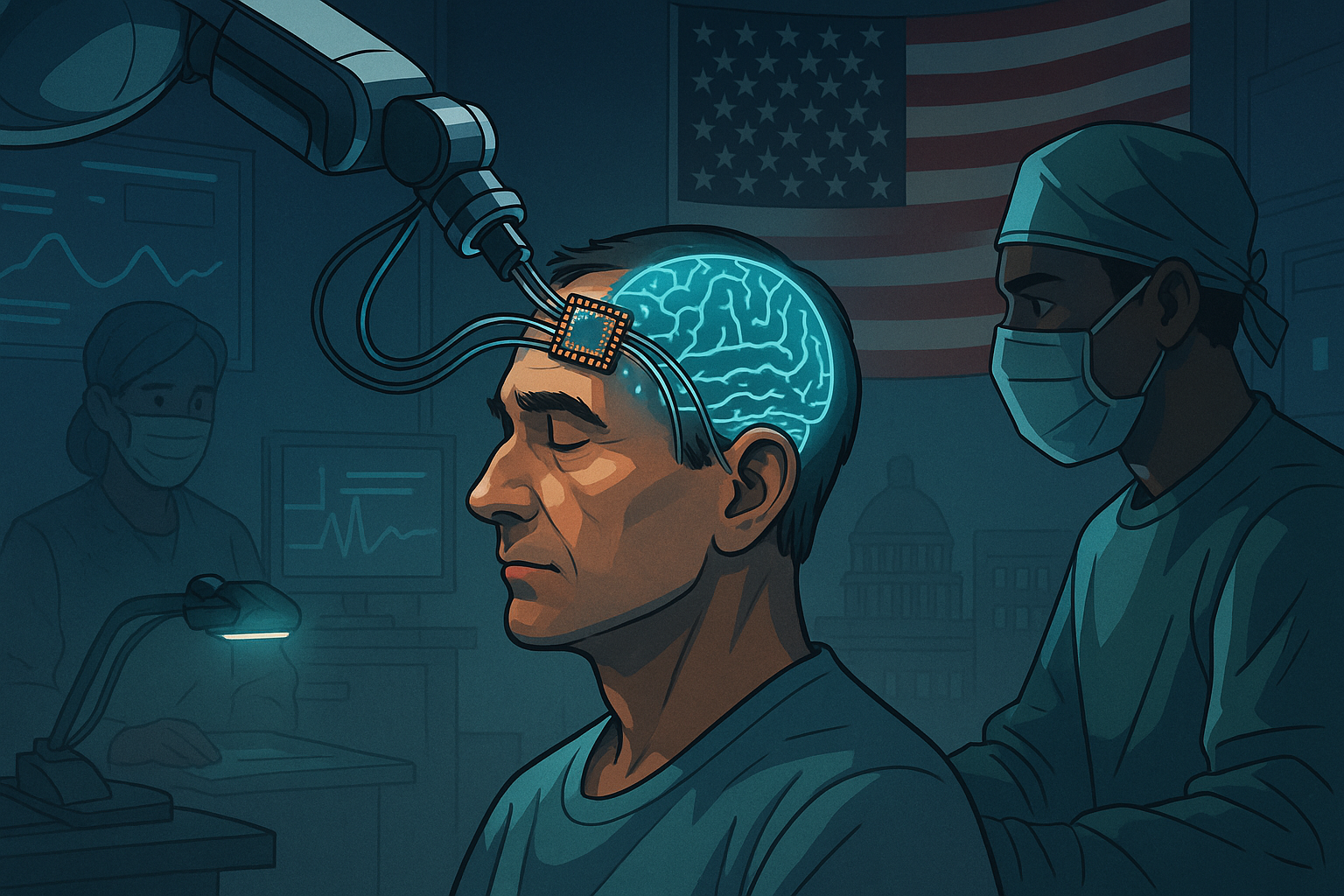A US company has implanted a neurochip in a human brain for the first time in history

US company Paradromics has performed the first live implantation of its Connexus BCI neural interface into a human brain. The procedure took place on May 14 at the University of Michigan and was combined with a neurosurgical operation of a patient undergoing epilepsy treatment. The device was inserted and removed in about 20 minutes.
According to the company, the implantation went without complications and confirmed both the safety of the system and the chip’s ability to read neural activity. This is the first step towards the start of full-fledged clinical trials, which Paradromics plans to launch in 2025, after receiving approvals from U.S. regulators.
Connexus BCI is designed to decode brain signals and transmit them to external devices. The main goal is to help people with severe motor impairments to communicate using computers. The device records activity at the level of individual neurons, which makes it particularly sensitive.
The head of the company Matt Engle noted that animal tests have already shown high accuracy and reliability of the interface. Now, he said, successful interaction with the human brain was an important milestone on the way to further developments. “This is inspiring and generates interest in the clinical phase,” he emphasized.
Despite the lack of FDA approval, US universities can use such devices for research purposes if the risks are deemed negligible. Paradromics used just such an opportunity to demonstrate its technology in action.
The company’s competitors are Ilon Musk’s Neuralink and Synchron. The latter in 2024 was the first in the US to allow a patient to control a smart home using thoughts. Neuralink, in turn, plans to develop neurochips for vision restoration.




